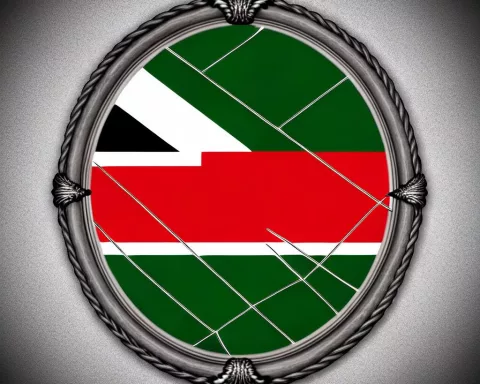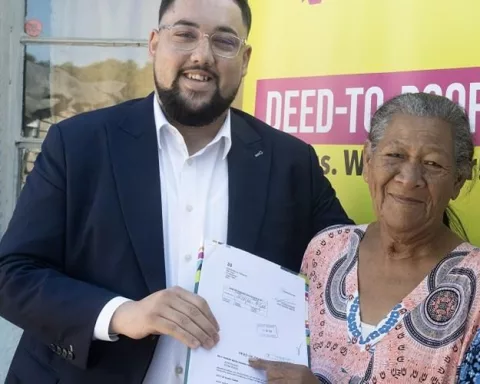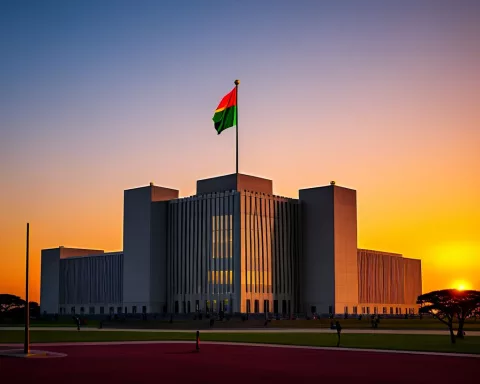The 2024 Expropriation Act in South Africa is a big step toward fairer land distribution. It allows the government to take land for public good, like building homes or roads, while making sure owners are treated fairly and compensated. This law aims to fix the wrongs of the past without being biased against any group of people. By focusing on underused land, the Act hopes to boost the economy and help all communities thrive. Understanding this law can lead to a brighter, more equal future for everyone in South Africa.
What is South Africa’s 2024 Expropriation Act?
The 2024 Expropriation Act aims to facilitate equitable land reform in South Africa by allowing the government to acquire land for public interest, ensuring fair compensation, and addressing historical injustices. It focuses on underutilized properties and promotes inclusive economic growth without racial bias.
A Historical and Legal Context
In the evolving narrative of South African society, the 2024 Expropriation Act emerges as a significant focal point. This legislation holds the promise of addressing the complex issue of land reform—a subject that has both unified and divided the country for generations. Misunderstandings and political disagreements cloud the discourse, but the Act seeks to navigate these challenges and pave the way for meaningful change.
To appreciate the full impact of the Expropriation Act, it is crucial to understand expropriation itself. This concept, used globally, empowers governments to acquire land for public purposes, ensuring that the needs of the society are met. Far from being a uniquely South African practice, expropriation finds parallels in various international legal systems. The Act delineates a structured approach for acquiring land for public interest, covering areas like infrastructure development, housing, and economic projects aimed at boosting growth and stability.
However, the South African Expropriation Act is not a mere imitation of global norms; it is a response to the country’s distinct socio-political context. It aims to rectify historical injustices while promoting modern economic growth. The key objective of the legislation is to guide South Africa toward a fair distribution of land, balancing this with the protection of individual property rights.
Dispelling Myths and Misconceptions
The Expropriation Act has sparked varied interpretations and myths, leading to widespread misinformation. One of the most significant misconceptions is the belief that the government has free rein to seize private residential properties. This is a distortion of the Act’s true intentions. It explicitly limits expropriation to instances serving the public interest, such as developing infrastructure or agricultural projects, primarily focusing on underutilized, neglected, or state-owned lands, rather than seizing private homes.
Another false narrative suggests that the Act targets white landowners, particularly Afrikaans farmers. This misunderstanding overlooks the Act’s race-neutral focus and adherence to the broader constitutional framework. The legislation is grounded in public necessity and not racial bias. South Africa’s Constitution requires land reform as a redress measure, and the Act is a tool to fulfill this constitutional mandate, applying to all property owners equally and without discrimination.
Compensation plays a crucial role in maintaining the Act’s fairness. Contrary to myths of uncompensated land seizure, the Act requires fair compensation for expropriated properties. Section 12(3) outlines specific scenarios where nil compensation might apply, yet even in these cases, the judiciary ensures that no arbitrary confiscations occur, preserving due process and fairness.
The Urgency and Impact of Land Reform
Understanding the historical context of land reform in South Africa highlights the urgency of the Expropriation Act. Since the end of apartheid, the nation has grappled with land redistribution, often hampered by corruption and inefficiency. As a result, many communities remain in uncertainty. The 2024 Expropriation Act aims to streamline this process through a clear legal framework, avoiding mass land grabs and respecting constitutional guidelines.
The broader implications of the Act extend beyond land redistribution. It seeks to foster a more inclusive economic model, where successful land reform could unlock economic opportunities, enhance agricultural productivity, and reduce disparities. The challenge lies in ensuring that expropriation benefits the broader population rather than a politically connected elite.
The Act’s journey into law reflects a global tendency toward addressing historical injustices through legislative reforms. South Africa’s struggles resonate with those in countries like Brazil, where land distribution is contentious, and India, where land acquisition laws have sparked debate. In each instance, balancing reform and rights remains central to national conversations.
Toward Constructive Dialogue and Implementation
Despite its controversies, the Expropriation Act is neither radical nor unprecedented. It consolidates existing legal principles, aligning South Africa with international standards. The conversation around land reform, though complex, demands a dialogue rooted in facts rather than fear. Constructive engagement is essential for South Africans to navigate the intersection of historical redress and economic viability.
As South Africa embraces this legislation, it stands at a pivotal moment of opportunity and obligation. The future of land reform presents both challenges and prospects, requiring thoughtful governance and active public involvement. The Expropriation Act, akin to a finely crafted artwork, necessitates careful evaluation and understanding, revealing its true purpose to those who look beyond the surface.
In conclusion, the Expropriation Act of 2024 is a crucial step in South Africa’s journey toward social justice and economic inclusivity. It challenges the nation to reflect on its past while forging a path toward a more equitable future. By dispelling myths and fostering informed dialogue, South Africans can harness the potential of this legislation to shape a fairer, more prosperous society for all.
FAQ on South Africa’s 2024 Expropriation Act
What is South Africa’s 2024 Expropriation Act?
The 2024 Expropriation Act is legislation aimed at facilitating equitable land reform in South Africa. It allows the government to acquire land for public interest, ensuring fair compensation to landowners while addressing historical injustices. The Act focuses on underutilized properties to promote inclusive economic growth without racial bias.
How does the Expropriation Act address historical injustices?
The Act seeks to rectify the wrongs of the past by providing a legal framework for land redistribution. It aims to engage with the historical context of land ownership in South Africa, particularly the inequities that arose during apartheid, and to ensure that all property owners, regardless of race, are treated fairly under the law.
Is the government allowed to seize private residential properties under this Act?
No, the Expropriation Act does not permit the government to indiscriminately seize private residential properties. It explicitly limits expropriation to instances that serve the public interest, such as infrastructure development or agricultural projects, primarily focusing on underutilized or neglected lands rather than private homes.
Will landowners receive compensation if their land is expropriated?
Yes, the Act mandates fair compensation for expropriated properties. While there are specific scenarios outlined in Section 12(3) where nil compensation might apply, the judiciary plays a crucial role in ensuring that due process is respected and that no arbitrary confiscations occur.
What are the broader implications of the Expropriation Act for South Africa’s economy?
The Expropriation Act aims to foster a more inclusive economic model by unlocking economic opportunities, enhancing agricultural productivity, and reducing disparities. Successful land reform could stimulate economic growth and benefit a wider section of the population, moving away from concentrating resources in a politically connected elite.
How can South Africans engage in constructive dialogue about the Expropriation Act?
Constructive dialogue about the Expropriation Act requires informed discussions rooted in facts rather than fear. South Africans are encouraged to engage with the legislation critically, participate in public forums, and share perspectives to navigate the complexities of historical redress and economic viability while fostering a more equitable society.












